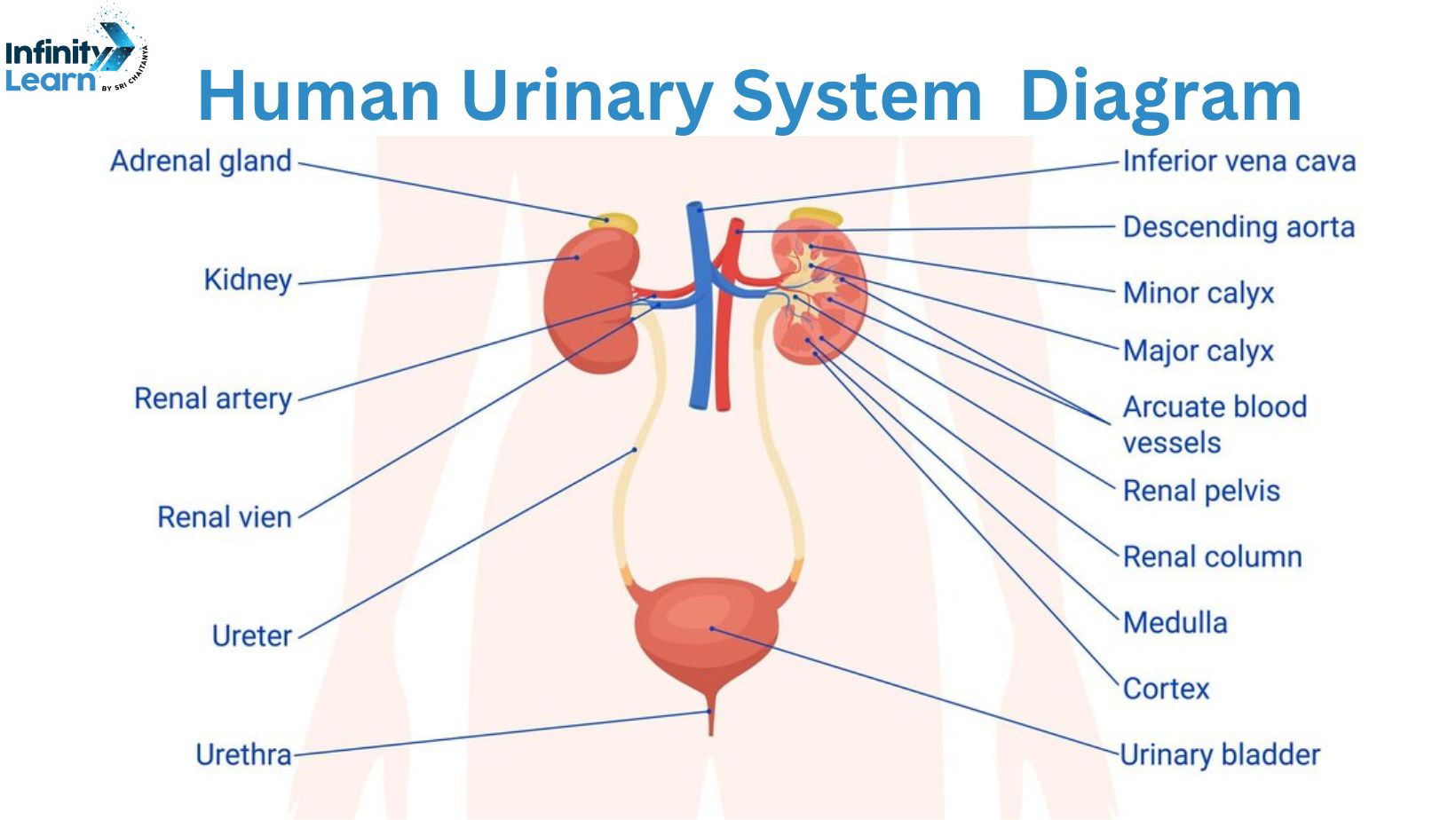
Courses

By Shailendra Singh
|
Updated on 8 Jan 2025, 15:23 IST
People eat food every day to get nutrients. After the body takes what it needs from the food, it gets rid of the stuff it doesn’t need. This process involves organs like the kidneys, urethra, ureters, and bladder. In this article, we’ll explain the human excretory system, what it does, and what parts it has, along with a detailed picture.
The Human Excretory System consists of special organs in the body responsible for getting rid of waste, like nitrogenous substances, and other unwanted materials. These organs include:
Also Check:
Ureter: The ureters are thin muscular tubes that connect the kidneys to the urinary bladder, transporting urine.
Kidneys: The kidneys are bean-shaped organs located on either side of the spine. They have several parts, including the capsule, Henle’s loop, and nephrons. Their main job is to remove waste like acids used in digestion and extra fluids from the body.
Urethra: The urethra is a tube that carries urine from the bladder to the outside of the body. In males, it also transports sperm. Sphincter muscles at the tube openings control the flow.
Urinary Bladder: The urinary bladder is a muscular sac that stores urine. It empties during urination.

Also Check: Excretory Products and their Elimination

As mentioned earlier, the human excretory system has several vital functions. Let’s go over them briefly:
Urine Formation: Urine is made in nephrons and then travels from the kidneys to the urinary bladder through tubes called ureters.
Tubular Reabsorption: During this process, the body absorbs ions and molecules like amino acids, water, glucose, and sodium ions through both active and passive methods.
Secretion: To maintain fluid balance in the body, excess amounts of fluids such as hydrogen ions, ammonia, and potassium ions are expelled.

Glomerular Filtration: This process involves filtering out excess fluid and waste from the blood, storing them in the kidneys’ urine collection tubes.
The excretory system mainly consists of the kidneys, ureters, bladder, and urethra.
The kidneys are the primary organ in the excretory system.
The kidneys filter waste from the blood, which is then removed as urine through the bladder and urethra.
Humans have one excretory system.
The main organ in the excretory system is the kidneys.
The excretory system removes waste and toxins from the body, maintaining proper balance and functioning.
Urine is formed in the kidneys through the filtration of waste from the blood.
The bladder collects waste in the form of urine until it is expelled from the body.
The excretory system is vital for removing harmful substances and maintaining the body's internal balance and health.